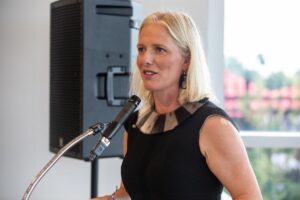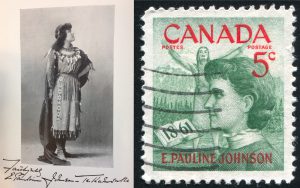
People & Culture
Renaming places: how Canada is reexamining the map
The history behind the Dundas name change and how Canadians are reckoning with place name changes across the country — from streets to provinces
- 4574 words
- 19 minutes
This article is over 5 years old and may contain outdated information.
People & Culture

Maybe you’ve never heard of John Smol. What you have heard of are the fruits of his 30-plus years of research. As one of the world’s top Arctic researchers, a leading lake expert and a pioneer of “paleolimnology” (the study of layers of lake sediment that provides insight into recent and ancient environmental shifts) this Queen’s University biology professor is among the most influential people on this list of change makers.
Smol’s work has helped people the world over grasp the reality of climate change and the rapidly changing landscape of polar regions, and has led to better protection for lake ecosystems. And his labours have not gone unrecognized. Smol, a Fellow of The Royal Canadian Geographical Society, has received more than 45 research and teaching awards since 1990, has held the Canada Research Chair in Environmental Change since 2001 and was made an Officer of the Order of Canada in June.
In July he collected his latest accolade. The W. Garfield Weston Foundation awarded Smol its annual Weston Family Prize for Lifetime Achievement in Northern Research and $50,000, the largest award of its kind.
“We’re delighted to recognize John for his dedication and enthusiasm in advancing research that will help predict and manage the impacts of environmental changes in the North,” says Geordie Dalglish, chair of the foundation’s Northern Committee.
“I’m honoured to be recognized with the Weston Family Prize,” says Smol. “They’ve had a huge impact. Their scholarships and fellowships came at a crucial time. Without this type of aid, we could lose our future generation of researchers.”
As a young undergrad student, Smol was already part of the burgeoning environmental science movement in the 1970s. And nearly every summer since 1983, he and teams of researchers have boarded inflatable boats and donned hip waders to take sediment samples from lakes and ponds across the circumpolar Arctic, including spots in Alaska, Norway, Greenland and Canada’s highest polar regions. He’s watched the Arctic change, and change fast, and has gathered ample evidence to show that human greenhouse gas emissions are a major culprit.
“Much of the High Arctic’s freshwater bodies are shallow ponds, and because ice is off so much longer now, there’s more time for evaporation,” Smol says. “Some ecosystems are totally disappearing. It’s hard to watch.”
Smol’s expertise is in high demand worldwide. Indeed, one of his textbooks is being translated into Mandarin. All this attention stems from the fact that while lake sediment is basically a mucky treasure trove of historical data about the environment, it also has a lot to offer about the present and future.
“We can date core sediments taken from a lake and say ‘this is the 1950s, this is the 1850s, this is 2,000 years ago,’ ” Smol says. “We can look at indicators and reconstruct how the environment has changed over time.” This has answered important questions about climate change, acid rain, how past Arctic peoples affected lake ecosystems and how contaminants are transported north, among a slew of other findings.
“When the research has helped us see where we’ve come from,” Smol says, “we are able to better answer the question ‘Where are we going?’ ”
Are you passionate about Canadian geography?
You can support Canadian Geographic in 3 ways:

People & Culture
The history behind the Dundas name change and how Canadians are reckoning with place name changes across the country — from streets to provinces

People & Culture
The story of how a critically endangered Indigenous language can be saved

People & Culture
A century after the first woman was elected to the Canadian Parliament, one of the most prominent figures in present-day politics shares her thoughts on how to amplify diverse voices in the Commons

People & Culture
The daughter of a hereditary Mohawk chief and an English immigrant, Johnson used her hard-won celebrity to challenge Indigenous stereotypes